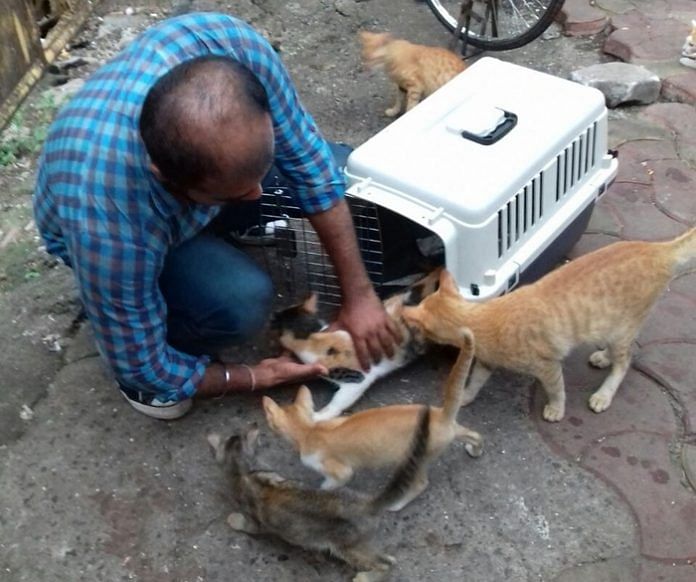Board cites misuse of cards by individuals; activists claim AWBI is taking away the only document that could prove their animal welfare credentials.
New Delhi: The Animal Welfare Board of India (AWBI) has decided to cancel all identity cards issued to animal rights activists, a move the latter say is bound to spark a controversy.
In a circular dated 6 March 2018, the board has instructed all honorary animal welfare officers (HAWOs) to surrender their ID cards, often called the “backbone” for animal welfare activism.
Citing gross misuse of the ID cards — the only document for activists to prove their animal welfare credentials, mainly to the police — S.P. Gupta, chairman of the board said it had become “imperative” to take this decision.
“There is endless harassment of people and extortion of money from individuals by (HAWO) cardholders that needed to be addressed,” he said.
While the circular states that HAWO cardholders may apply for reissuance of their cards, Gupta told ThePrint that the board is currently examining a new eligibility criterion.
Curbing harassment by cardholders
So far, cards were issued on the recommendation of NGOs, thus leaving the board with limited powers to determine the conduct of cardholders.
“As per the new guidelines, only individuals recommended by State Animal Welfare Boards, AWBI members or district SPCAs (Societies for Prevention of Cruelty to Animals) will be issued the cards,” he said. The fresh guidelines should be prepared within this month, Gupta added.
Moreover, the new cards will clearly mention that individuals cannot use them to take law into their own hands or accept money from the public, Gupta said.
‘An arbitrary blanket ban’
While the cards do not give any prosecution power, they act as a state recognition for over 2,000 animal rights volunteers and activists across the country. The activists had to undergo training in animal law before they were issued the card.
“Their job is to responsibly communicate with the law enforcement agencies when there is any offence,” said Gauri Maulekhi, who is associated with People for Animals.
“If there is any misuse, then you withdraw the cards in question. This blanket withdrawal means there is something fishy,” she added.
Jayasimha Nuggehalli, a senior animal rights activist and former AWBI member, said, “It’s as though the new board is telling activists that since the older dispensation gave you these cards, we will take them away.”
“Already the board chairman has said that cows are a priority for them. Our worry is that this move would lead to some kind of cherry-picking and issues other than cow welfare will be sidelined by the board,” he added.
The fallout between the government and the AWBI over Jallikattu in 2016 had led the Centre to remove all 22 members of the board when their three-year tenure ended, and constitute an entirely new board.
“I would have had the highest respect towards the board if it laid out a proper criterion to give off these identity cards…But right now the move appears to be extremely arbitrary,” Nuggehalli, who admitted that there is misuse of the cards, said.
‘Backbone of animal welfare activism’
The mass revocation of cards is bound to have ramifications on the way cruelty is dealt with in general, he added.
“Anyway the police don’t take you (animal rights activists) seriously. This card which certifies you as a trained animal welfare activist is the backbone for activism in remote parts of the country,” Nuggehalli, who himself was given this card in 2000, said.
Maulekhi agrees. “This means preventing public participation (in the field of animal welfare) in the absence of any efforts to increase the penalties (for cruelty meted out to animals),” she said.
“It is basically killing any chances for implementation of the (Prevention to Cruelty of Animals) Act,” she added.
Currently, the culprits flouting rules get away by merely paying Rs 50 as fine.




Shadow activist needs to be exposed, its good as we dont required any tag to perform fundamental duties.
Help us to help helpless animals